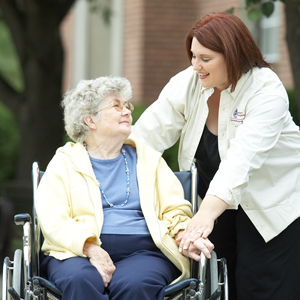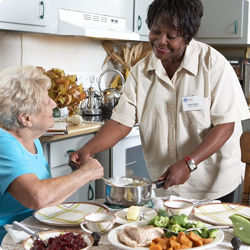When Your Loved One Struggles to Take Medication.
Blog | December 6, 2016
While medications can improve and prolong our lives, there are many factors that can interfere with our ability or willingness to take medication as directed. Knowing that someone you love is having difficulty sticking to a medication regimen can be frustrating and frightening.
Medication non-adherence is very common across all age groups, but for seniors, the stakes can be especially high. Up to 25% of nursing home admissions may be attributable to medication non-adherence. It’s important for everyone involved in care to work together to identify and remove barriers. Fortunately, there are several things you can do to support your loved one in staying on track with medically recommended treatment, and help them retain their health and independence.
Medication Support
If you are concerned that your loved one’s non-adherence to medication is putting them at risk, home-based medication administration is available through our nursing care services. Our caregivers are specially chosen for their compassion and desire to help improve the quality of life and will take time to listen to you and your loved one’s concerns and challenges. Our caregivers can also communicate with other health care professionals as required.
Identify the Barriers
There are many practical barriers to medication adherence, such as cognitive, physical, and logistical challenges. In these cases, facilitating access to medication through coordination of support is critical and effective. Deliberate non-adherence is a more complex issue to manage. The World Health Organisation (WHO) identifies three factors that affect willingness to comply with treatment:
- inadequate information
- low motivation
- poor self-efficacy (confidence in one’s own capacity to administer medication properly)
Does your loved one have everything they need to make the most effective decisions around medication? Creating a non-confrontational and non-judgemental space for discussion will be critical in helping to identify the factors that are preventing good adherence. You may feel understandably frustrated, frightened or angry, but the focus needs to be on carefully listening to your loved one’s experience, beliefs, and knowledge.
Review Medications Together
Ask your loved one to show you each medication they are taking, what they are for, and how they should be taken. This is a good opportunity to review their understanding of the instructions, their health condition, and the treatment, and identify and discuss any misperceptions. These can include:
- denial of the need to treat an illness, which may be symptomless (such as high blood pressure)
- beliefs about the effectiveness of the treatment
- worries about social stigma
- fear of dependency
Advocate for Effective Communication
It may be necessary to follow up with the pharmacist or prescribing physician if there is a lack of clarity about the health condition, or the prescribed treatment. Effective communication between health care professionals and patients is critical, but sometimes lacking. Advocate for good communication, and ensure that information is provided to your loved one in a way they can understand and remember. Some seniors have difficulty with complex verbal explanations. Ask for written material that can be kept with the medication, and reviewed independently.
Side effects are a common reason for non-adherence to medication at any age. If your loved one reports unpleasant side effects, it is critical that these are reported to the pharmacist or prescribing physician. Up to 70% of seniors are on multiple medications, and interactions may also cause problems. Careful and regular review of medications and side effects with the pharmacist can help optimize treatment. Changing medications, timing or dosing may reduce or alleviate unpleasant effects and improve compliance with treatment.
Research shows that empowering your loved one with the proper motivation, education, and support is the most effective strategy for improving medication adherence, and in turn, ensuring retention of health and independence. If you or your loved one needs support in identifying and addressing some of these barriers, please contact us today for a free in-home assessment.
Individualized Home Care Options
Long-Term Home Care, 24 Hour Home Care & Short Term Care Options Customized for You







